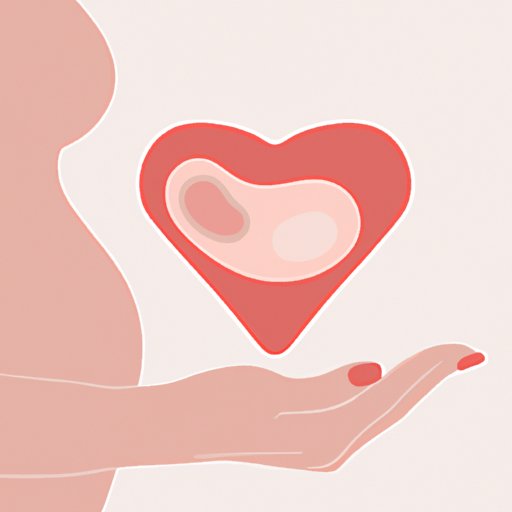
Introduction
For many women, trying to conceive another child soon after giving birth can be an important issue. However, it is crucial to consider the medical, practical, and personal factors that may affect your decision to get pregnant quickly. In this article, we’ll explore how soon after birth a woman can get pregnant, and provide insightful tips and advice to help you navigate this complex decision.
Medical Perspective
After the delivery of a baby, the body undergoes several changes, especially hormonal fluctuations, and the return of ovulation, which signals the possibility of another pregnancy. Typically, ovulation can occur as early as 25 days after childbirth for women who are not breastfeeding, and around six months postpartum for women who exclusively breastfeed their babies. While it is possible to get pregnant soon after giving birth, pregnancy within the first few weeks or months poses certain risks to both the mother’s and baby’s health, such as increased chances of preterm labor, low birth weight, and uterine rupture.
Contraceptive Options
Various contraceptive methods are available for women postpartum, including condoms, birth control pills, and intrauterine devices (IUDs). Choosing the most suitable contraceptive option will depend on several factors such as, your medical history, personal preferences, and family planning goals. It is worth noting that some contraceptive methods can have negative impacts on breastfeeding and the return of ovulation, so it is important to discuss the various options with your healthcare provider to determine the most suitable choice.
Breastfeeding and Fertility
Breastfeeding can affect a woman’s fertility, as the hormone responsible for milk production (prolactin) inhibits the release of ovulation hormones needed for conception. However, this does not guarantee protection against pregnancy, so it is essential to use contraception until you are ready for another pregnancy. If you plan to breastfeed, it is crucial to discuss with your healthcare provider about contraception options that work best in combination with breastfeeding.
Planning for Parenthood
Planning and preparing for pregnancy, well in advance, can help increase your chances of a healthy pregnancy and baby. Factors such as age, overall health, lifestyle, and financial considerations may all impact a woman’s decision to have another child soon after giving birth. Discussing these factors with your partner and healthcare provider can help you prepare for the next pregnancy mentally and financially.
Practical Considerations
Trying to conceive while caring for a newborn and dealing with the physical demands of pregnancy can be overwhelming. Balancing childcare, work, and pregnancy is a daunting task. It is vital to get a support system in place and practice self-care to help manage the stress. Seek the assistance of family or friends and engage them in the baby care routine. Additionally, it is essential to speak with your supervisor or HR representative to discuss a flexible work schedule to accommodate the physical demands of pregnancy and childcare.
Personal Stories
Personal stories offer insight into the challenges and joys of trying to conceive soon after giving birth. Mothers who have navigated this journey provide unique perspectives and valuable advice. It is encouraging and comforting to know that other women have successfully managed to navigate pregnancy and parenthood in quick succession.
Conclusion
The decision to try for another pregnancy soon after giving birth can be difficult, and there is no one-size-fits-all answer. Discussing your options with your healthcare provider and loved ones can help you make an informed decision. Remember to take care of yourselves, seek support, and plan well in advance to ensure the best outcome for you and your family.





